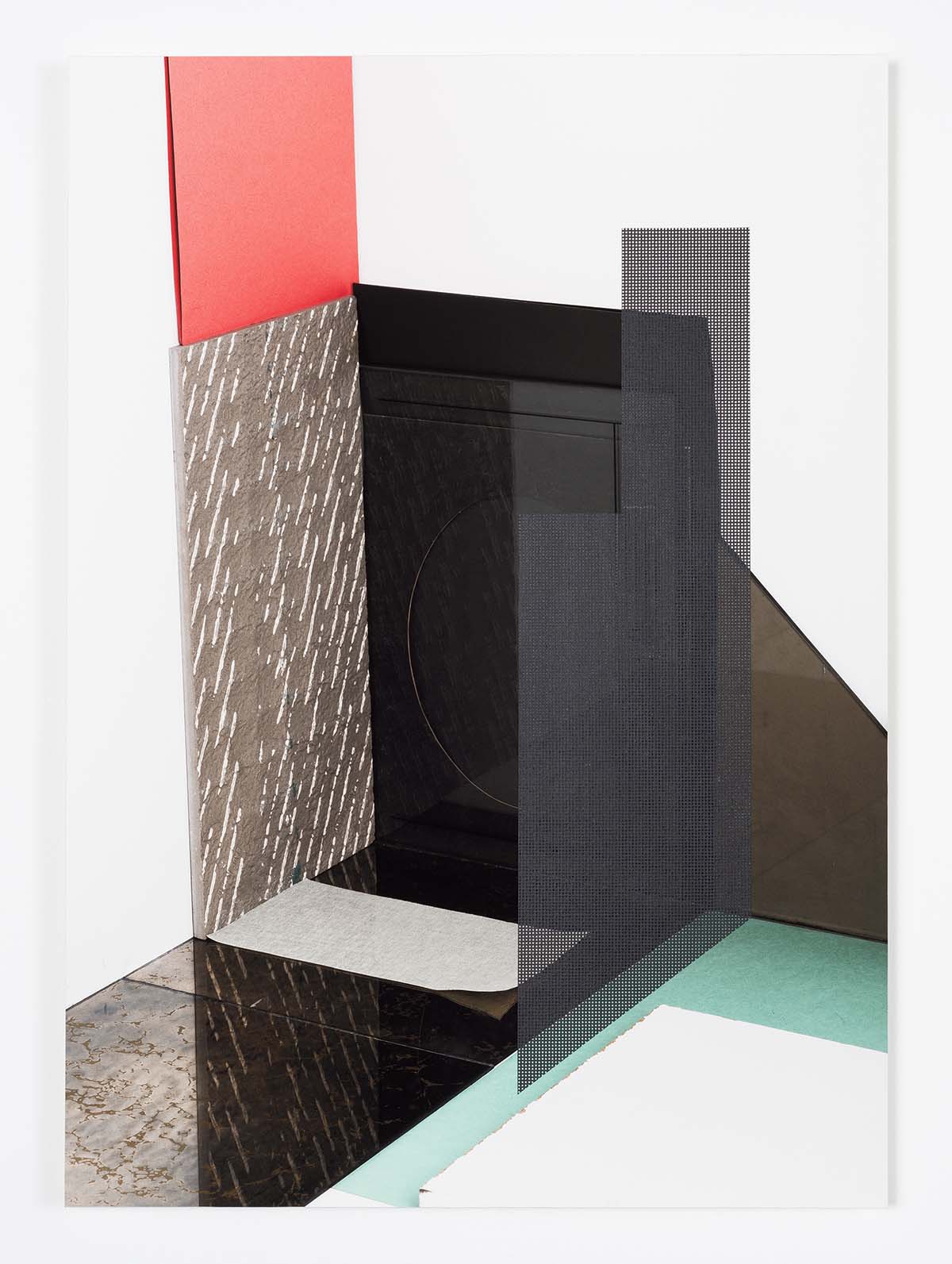
July 2015

Phillip Maisel. “Serengeti Green (1836),” 2015
Archival Pigment Print and Scrim. 17″ x 24″
Review: Phillip Maisel/Document Gallery
By Chris Reeves
Repetition with minuscule change might be the hallmark of our day. Apps update regularly, new iPhones roll out yearly, movies reinvent themselves over and over again, all in a pursuit of user satisfaction. A good indicator of this is someone like Katy Perry—plastic bag, party girl, roaring tiger—in short, whatever we want or need her to be. This endless buffet of options suits our twenty-first-century needs but also keeps us fickle and anxious. Phillip Maisel’s photographs in his exhibition “Serengeti Green” use the vernacular of constant, minimal change that dictates this contemporary anxiety, asking us to slow down and consider these minor variations.
The photographs share a formal similarity, exacerbated by gridded wall arrangements that suggest concatenation. They depict abstract assemblages—circles, rectangles, glossy surfaces—and are arranged in a way that recalls product photo shoots, with small variations here and there. To complicate this, Maisel bends and cuts the actual photo print, tucking other formal abstractions in pockets of the material surface. This move illustrates Maisel’s emphasis on minor editing—bringing the maneuvers of photo-editing tools to bear on the print itself. Looking at the exhibition as a whole, one can’t help but notice the slight discrepancies, particularly on the walls that read sequentially. Reading the photographs left to right, almost as a comic strip, creates an effect not unlike a “spot the difference” puzzle.
Through the lens of fine art, these photos can be a consideration of materiality or the permanent impermanence of the photographic image. Maisel’s moves with repetition and variety speak to this well, but they work also as a reminder that contemporary art is no exception to our twenty-first-century anxiety. The photos could easily be summed up as “neo-Constructivist.” Yet, to condense these works as a response to the Constructivist tradition, while fair, would be to miss the rigor of what Maisel is presenting, which is a larger question: What do we do with today’s dictate of constant moving forward promoted through micro-transformation, and what do these fluctuations do to us?
